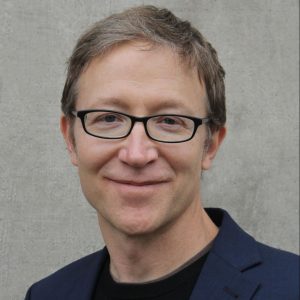 Lucas Graves, Professor in the School of Journalism and Mass Communication received the H.I. Romnes Faculty Fellowship in recognition of his exceptional research contributions to the field of mass communication.
Lucas Graves, Professor in the School of Journalism and Mass Communication received the H.I. Romnes Faculty Fellowship in recognition of his exceptional research contributions to the field of mass communication.
The Romnes Fellowship is supported by the Wisconsin Alumni Research Foundation (WARF). It recognizes and supports faculty and their research within their first six years from promotion to a tenured position.
Graves has been an SJMC faculty member since 2012, when he joined as an assistant professor, and received tenure in 2018. His research focuses on new professional movements in journalism, like the global fact-checking movement.
“I am really excited to be a part of the next cohort of Romnes recipients,” Graves said. “I have always been so impressed by the caliber of research carried out across this university, and it makes me proud to be a part of an institution that supports such a wide array of scholars studying such different questions.”
Upon receiving the Romnes Fellowship, awardees are granted $60,000 in research funds to be spent over five years. Graves will use the funds to support his research on fact-checking organizations around the world, studying how they operate in different political environments and how their movement is changing as threats from disinformation keep evolving. The award will help to pay for costs like travel, transcribing interviews, and working with research assistants to analyze large volumes of data.
“This award will help right away,” Graves said. “In two weeks, I’m traveling to Seoul, South Korea, for the 10th annual GlobalFact Conference, and this funding is crucial to carry out my research there.”
The challenge for many academics as they progress throughout their careers is how to transition between different large-scale research projects. Awards like the Romnes Fellowship are meant to ease that burden for those making that transition in the years after tenure.
“This kind of funding is so important in helping people to take a step back and think more strategically about their long-term research goals and what they want to accomplish, and to look at their career trajectory in a new way,” Graves said.